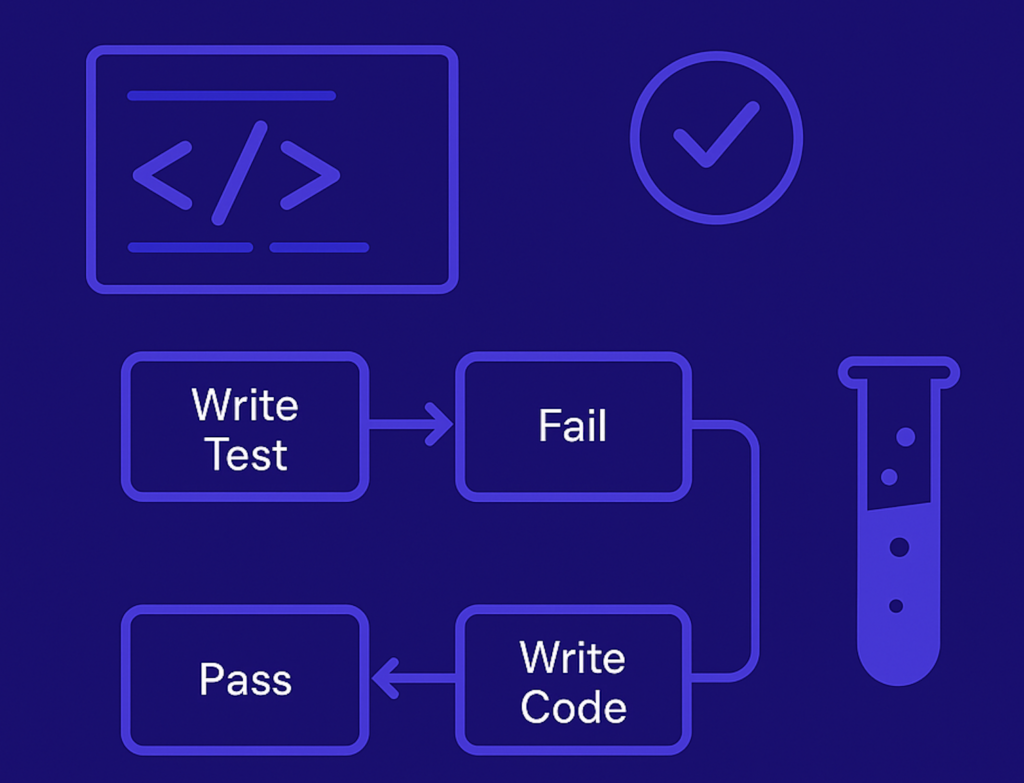
At DPDzero, every backend change must be accompanied by tests. No exceptions. We’ve been doing this since day one — and while many startups believe testing slows down development, we’ve seen the exact opposite.
There’s a belief that writing tests slows you down and hurts speed, especially in early-stage startups. In reality, not writing tests is what slows you down — especially as your codebase grows and evolves.
The typical development cycle without TDD (Test-Driven Development) looks like this:
This has some major drawbacks:
Over time, these issues compound. As more features are added, more engineers join, and more bugs surface, shipping confidently becomes harder without a reliable test suite.
At DPDzero, good test coverage is a speed enabler. It gives us the confidence to build and ship fast, with fewer bugs and easier maintenance.
When building new APIs or features:
When modifying existing code:
At DPDzero, we follow a “mock only what’s necessary” philosophy when writing tests.
We do not mock core infrastructure components like:
Mocking these can lead to misleading tests that don’t reflect real-world behavior. Instead, we rely on integration-style tests that hit actual services (or lightweight local containers) to validate correctness end-to-end.
However, we do mock things that:
This approach ensures that our tests are both reliable and realistic. We optimize for fast feedback without sacrificing test fidelity. If your test passes, it’s highly likely the actual feature will work as expected in production.
✅ Instant gratification
Seeing tests turn from red to green is deeply satisfying. It’s a visible sign of progress — and correctness.
⚡ Speed
Writing tests helps you move faster. You verify the backend is solid before wiring up the frontend. Refactors become safe and fast.
🛠 Easy maintenance
Tests stick around. As code changes, tests catch regressions instantly. This keeps the codebase stable even as it evolves.
🧠 Better design and clarity
TDD forces you to think about the API and its usage before implementation. This leads to cleaner, more modular, and well-thought-out code with better separation of concerns.
📉 Fewer bugs in production
By covering edge cases and known failure scenarios early, TDD drastically reduces the likelihood of bugs slipping through to production — especially regressions.
👥 Easier collaboration
Tests act as living documentation. When other developers touch your code later, the tests tell them how it’s supposed to behave. This makes collaboration smoother and onboarding faster.
🔄 Confidence to refactor
When you want to improve or clean up code, having a strong test suite gives you the confidence to make changes without fear of unintended breakage.
Writing tests doesn’t slow us down — it’s how we move fast and break nothing. That’s why we’re proud to be dogmatic about testing at DPDzero.